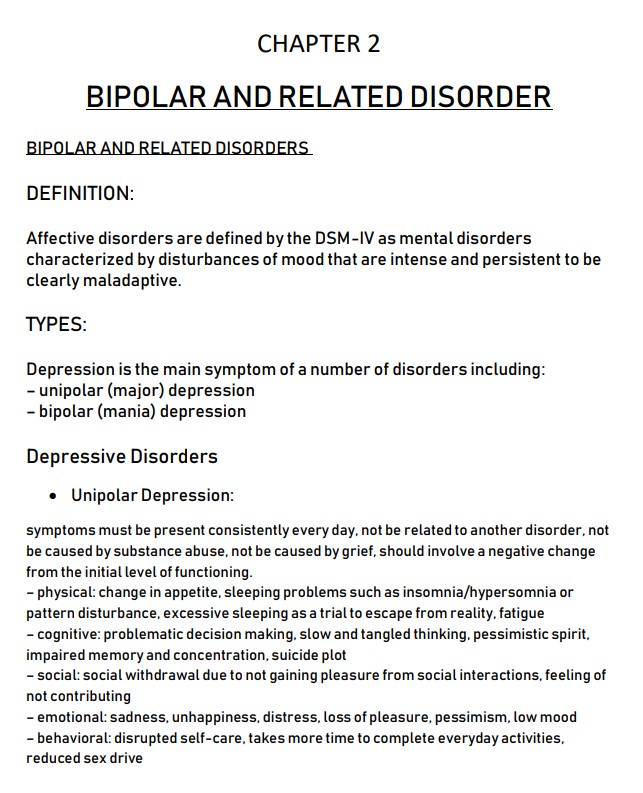Bipolar and Related Disorders
Summary:
This note discusses bipolar and related disorders. The types of depressive disorders, their symptoms, and DSM-IV-TR criteria for major depressive disorder are explained. The chapter also covers the explanations of depression, such as biological, cognitive, and behavioral, and their corresponding treatments. The use of psychometric tools such as the Beck Depression Inventory is also discussed. The chapter concludes with a discussion of treatments such as antidepressants, electroconvulsive therapy, cognitive restructuring, and rational emotive behavioral therapy.
Excerpt:
BIPOLAR AND RELATED DISORDERS
DEFINITION:
Affective disorders are defined by the DSM-IV as mental disorders characterized by disturbances of mood that are intense and persistent to be clearly maladaptive.
TYPES:
Depression is the main symptom of a number of disorders including:
– unipolar (major) depression
– bipolar (mania) depression
Depressive Disorders
• Unipolar Depression:
symptoms must be present consistently every day, not be related to another disorder, not be caused by substance abuse, not be caused by grief, and should involve a negative change from the initial level of functioning.
– physical: change in appetite, sleeping problems such as insomnia/hypersomnia or pattern disturbance, excessive sleeping as a trial to escape from reality, fatigue
– cognitive: problematic decision making, slow and tangled thinking, pessimistic spirit, impaired memory and concentration, suicide plot
– social: social withdrawal due to not gaining pleasure from social interactions, the feeling of not contributing
– emotional: sadness, unhappiness, distress, loss of pleasure, pessimism, low mood
– behavioral: disrupted self-care, takes more time to complete everyday activities, reduced sex drive
Major Depressive Disorder
The DSM-IV-TR diagnosis of major depression disorder (MDD) requires depressive symptoms to be present for at least 2 weeks. These symptoms must include either a depressed mood or loss of interest and pleasure.
MDD is called an episodic disorder because symptoms tend to be present for a period of
time and then clear.


Reviews